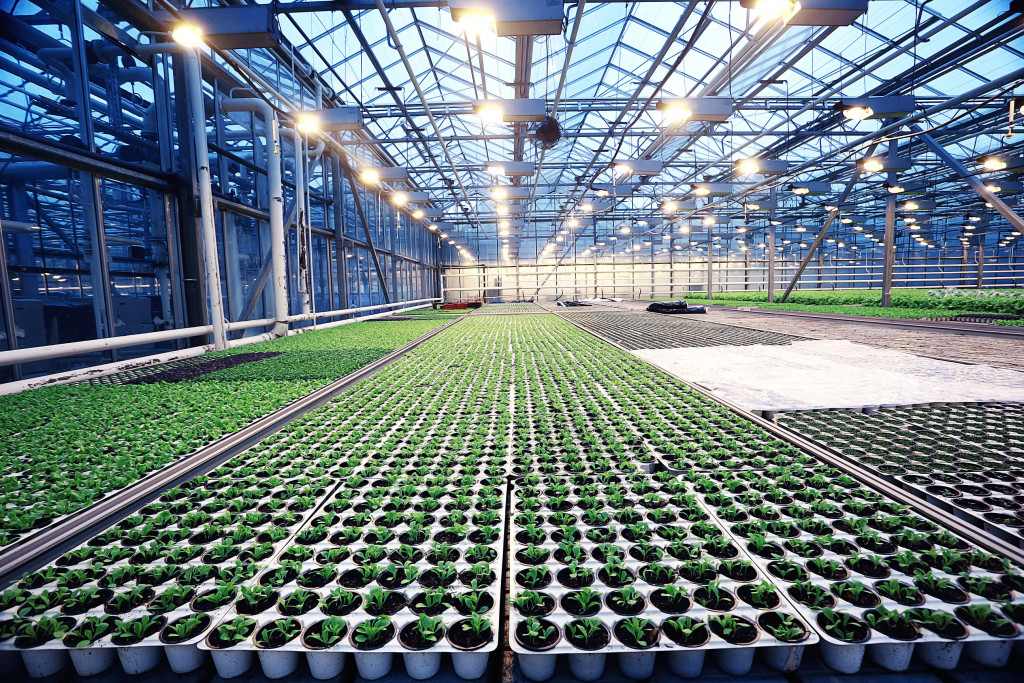- Start with an energy audit to identify potential opportunities for efficiency.
- Utilize low-cost measures such as LED lighting, efficient HVAC systems, and replacing old appliances.
- Make sure your equipment is properly maintained.
- Implement an Energy Management System (EMS).
- Educate employees on energy conservation.
Farm businesses need to be as energy-efficient as possible, not just for the sake of reducing costs and improving sustainability but also because it can positively impact the environment. If you are looking for ways to boost energy efficiency in your farm business, there are five ways to get started.
1. Start with an Energy Audit
The energy audit is a great way to identify energy efficiency opportunities in your farm business. It helps you discover how and where energy is used and the potential ways to reduce energy use. An energy audit typically includes examining the building envelope, insulation levels, windows and doors, lighting systems, HVAC systems, water heating and other appliances, and assessing existing energy-use practices.
2. Utilize Low-Cost Measures
You can take several low-cost measures to increase your farm’s energy efficiency. These include installing LED lighting, efficient HVAC systems, and weather stripping around windows and doors. You can also replace old appliances with energy-efficient alternatives to reduce energy consumption.
Here are some other ways to utilize low-cost measures to increase energy efficiency in your farm business:
Temporary Heating Solutions
Using temporary high-quality heating solutions for farms can effectively heat large open spaces in your farm business efficiently. These heating solutions will ensure you are not wasting energy, as the heat is contained in the heated space.
Upgrade Your Appliances
Replace dated, inefficient appliances with newer models designed to use less energy. Many modern kitchen and laundry appliances have an A+++ rating for their energy efficiency — this means they’re using up to 40% less energy than other models. Before you buy, research the most efficient and cost-effective appliances available.
Utilize Natural Light

Take advantage of natural light whenever possible when running your farm business. This means opening windows and curtains daily and relying on natural light instead of artificial lighting. You can also use daylight sensors to detect the amount of natural light coming in and adjust artificial lighting levels accordingly.
Invest in Renewable Energy
Renewable energy sources, such as solar and wind power, can help you reduce your farm’s reliance on fossil fuels. These are more expensive upfront but can save you money in the long run. Solar panels and wind turbines also benefit from being environmentally friendly alternatives to traditional electricity generation methods. They can also make your farm more energy independent and help you reduce your reliance on the electrical grid.
3. Make Sure Your Equipment is Properly Maintained
The proper maintenance of your farm equipment is essential for increasing energy efficiency. When your equipment is in good condition, it will require less energy, resulting in lower fuel costs and fewer emissions.
Following the manufacturer’s instructions regarding routine services and repairs is important to maintain your equipment properly. Regularly check the settings on your equipment, inspect for signs of wear and tear, and replace parts when necessary. You should also clean machinery regularly to ensure that dirt doesn’t interfere with its operation. When you do have to make repairs or changes, try to find more energy-efficient alternatives to maximize the efficiency of your equipment.
4. Implement an Energy Management System
An Energy Management System (EMS) is a cost-effective, comprehensive system designed to manage and optimize energy consumption in your farm business. It helps you identify opportunities for energy savings and develop strategies to reduce costs and improve efficiency. EMS can be customized to meet your organization’s specific needs and monitor energy use at all times. This makes it easy to identify areas that can be improved and potential issues with poor energy management. The system can also alert you when energy consumption deviates from expected levels and allows you to take corrective actions immediately.
EMS helps your business track energy consumption more efficiently, allowing you to make informed decisions about energy usage. You can identify energy use trends through accurate monthly monitoring and pinpoint areas where you need to implement changes. You’ll also be able to accurately measure the effects of energy management efforts on your bottom line. As a result, you’re more likely to make sustainable, cost-effective decisions to reduce energy usage and improve operational efficiency.
5. Educate Your Employees on Energy Conservation

Educating your employees on energy conservation is important to boosting energy efficiency in your farm business. Ensure they understand the importance of conserving energy and how it can help save money and resources. Encourage them to turn off lights when leaving a room and use natural light whenever possible. Provide tips and advice on how to save energy in their daily routines.
In Closing
These are just a few ways to boost energy efficiency in your farm business. With some planning and careful implementation, you can reduce your farm’s energy costs and help protect the environment simultaneously. With the right strategies, you can ensure your farm runs as efficiently as possible.

